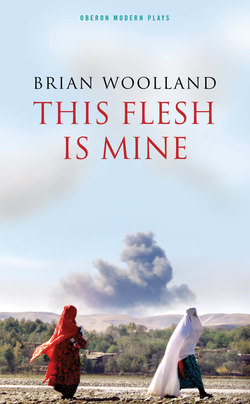Читать книгу This Flesh Is Mine - Brian Woolland - Страница 5
На сайте Литреса книга снята с продажи.
ОглавлениеMyths and Modernities
For a long time, I’ve wanted Border Crossings to engage with the cultures of the Middle East. Our work is about intercultural dialogue, both internationally and within our own evolving British society – and in the 21st century that mission makes the region, with its huge geopolitical significance, the space to which we are inescapably drawn.
For artists, as for diplomats and politicians, the challenge is to engage meaningfully without adopting the inappropriate and dangerously arrogant stance of moral arbiter; to recognize how we are implicated in the complexities of the region without apportioning praise and blame around its conflicts. Art needs to recognize and embrace complexity, not to pander to the simplistic and reductive agendas implied by the desire for quantifiable ‘outcomes’. Art can contribute to social, cultural and political progress only if it penetrates beneath the surface of the mediated discourse and searches for the emotional reality of what is happening on a human scale – the political drama that takes place in the flesh.
When Brian Woolland suggested the idea of a play that approached these questions through the medium of Homeric myth, it offered us the possibility of a real engagement without the pitfalls of simplistic moralizing. Refracted through the prism of The Iliad, the play could become at once immediate and oblique, resonating with echoes of the conflicts in the region without reproducing them in a literal (and hence inadequate) way. That is why mythologies persist so powerfully: they offer us a cultural space in which to explore our unraveling histories.
The need for such action was pointed out by the great Palestinian writer Mahmoud Darwish, who called his compatriot Edward Said “the last hero in that epic, / defending the rights of Troy / [to share the story].” For Darwish, Homer’s epic is the history of the victors, the colonizing Achaeans, and so requires contestation in the fragmented poetry of his “future Troy”, the culturally inspiring city of Ramallah. “No Homeric echoes for anything … / only a digging up of a comatose state / under the ruins of an encroaching Troy.” An intercultural Iliad for the 21st century has to carve out space for the marginalized: the captives, the women, the aged, the refugees. It has to become a site of resistance to the simplifying discourses of the political mainstream.
Homer’s Iliad ends with the funeral rites of Hector: and so its climax is the mission of Troy’s old King Priam to Achilles, humbling himself, appearing as a father and a man to offer the eloquence of grief and nakedness, pleading for the return of Hector’s corpse. It’s an incredibly potent image – one which has served to inspire many contemporary artists in zones of conflict as they strive towards the possibility of reconciliation. In August 1994, two days after the Northern Irish truce, Michael Longley published a sonnet called Ceasefire in the Irish Times. Drawing off this same passage in Homer, Longley ended with a couplet that also echoed the words of Gordon Wilson, a father from Enniskillen whose daughter had died in the Remembrance Day bombing of 1987, and who had appeared on television publicly to forgive her murderers in one quiet sentence that has itself acquired mythic status in Ireland:
‘I get down on my knees and do what must be done And kiss Achilles’ hand, the killer of my son.’
In This Flesh is Mine, that scene is not allowed to become climactic, and rightly so – in the Lebanese civil war there were constant periods of truce during which bodies were returned to their families across the Green Line before the fighting simply erupted once more. Every attempt so far at a solution to the Israel-Palestine question has faltered. The scene becomes pivotal, but not decisive, as poetry slips away and strange echoes of contemporary reality resound louder and louder in the mythic space.
Howling for our attention.
Michael Walling
